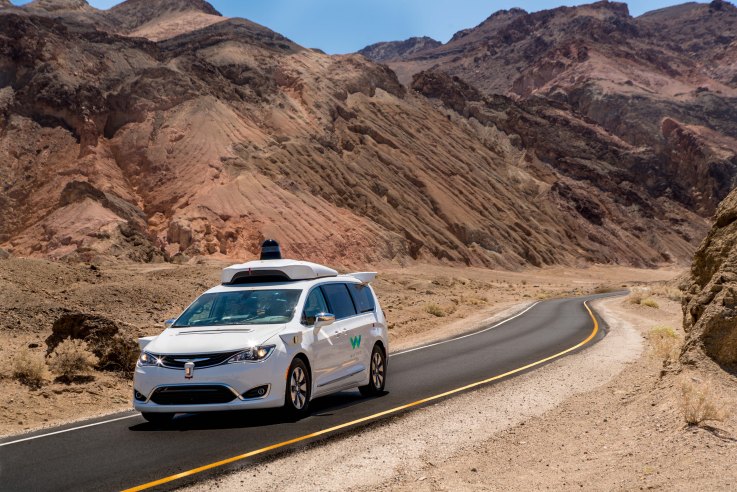Waymo says its self-driving car tech is road ready for extreme heat

Waymo has provided some additional visibility into how it goes about testing its autonomous vehicle tech in extreme heat, describing a process of stress testing its Chrysler Pacifica minivans that began nearly a year ago, starting with a controlled internal wind tunnel that can replicate the hottest temperatures ever on record in the U.S.
That kicked off a road trip that included heat testing in as many deriving scenarios as possible, all under the hottest conditions available in the U.S. So Waymo tested stop-and-go traffic performance, long ideas, operating on aggressively sloped roads – and even monitoring cabin controls as well as the state of its self-driving software and the exterior of the vehicle using onboard sensors.
In a blog post, Waymo says that it’s currently performing a lot of these tests in Death Valley, where temperatures on record have hit as high as 134°F, or hot enough to melt the rubber of your shoes on sun-baked pavement.
The tests paid off, however, with a much-needed confirmation of Waymo’s closed environment testing – its in-house designed sensor hardware, as well as its onboard autonomous driving computers, are road ready for extreme heat. The company now seems confident that even in the highest temps users would be likely to encounter on real roads, with A/C maxed out, their autonomous systems will behave as desired.
Waymo has been working on self-driving cars for about a decade now, with its original development and testing done when it was Google’s self-driving car project. The work they’re doing now is all about detail, consumer-grade road readiness and edge cases, which is what makes high heat success such an interesting milestone.